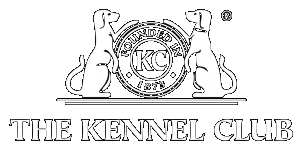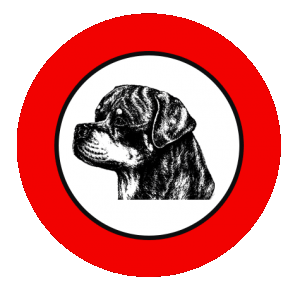
ASSURED BREEDER SCHEME MEMBER


A R V
 ASSURED BREEDER SCHEME MEMBER |
 |
 A R V |
|
|
HEALTH |
Register your puppy with a
trusted, recommended local vet as soon as you can as although they may look
robust, a new puppy is vulnerable and needs protecting from a number of “nasties”
as it continues to grow into an adolescent and into full maturity.
The puppy’s maternal antibodies have an indefinite life and although there are
“rules of thumb” as to what antibodies are gone, and by what approximate date,
it is important you take your record of vaccination & immunisation with you as
you attend the vets to continue the process. Vets differ in their vaccination
protocol and so need to know exactly what has been done and will schedule with
you exactly what will need doing for the future. ie booster and worming
frequency etc.
The first visit to the vet is also a great opportunity to ask any questions
about general puppy health. This potentially may not be one of your puppy’s
favourite experiences, but don’t fuel any anxiety they have. Simply keep
assuring them, pay them lots of attention and take a favourite toy or blanket to
comfort them. A few selected treats in your pocket can always help too so that
the whole experience has positive associations and will trigger them again when
the smells and sounds of the vets practice next appear for whatever reason.
PET INSURANCE
Naturally, you want your dog to enjoy a long healthy life – and of course we
wish that too but as in most areas of life, the unexpected can happen and it’s
best to be prepared if your dog requires lengthy medical treatment or an
expensive operation.
There are a wide choice of pet plans and insurances available on the market and
although they add a premium, they also add peace of mind.
PAWS AND CLAWS
Claws constantly grow but will wear down naturally with regular brisk walks
along the pavement. However if your puppy is mainly exercised on grass (which of
course they’ll love) their claws will become too long and must be clipped to an
appropriate length. Your vet will be happy to clip them and can show you how to
do it too if you ask and feel confident.
If you notice your puppy is licking /gnawing a paw or limping, gently examine
the pads for cuts or tiny objects under a good light and remove anything that is
obvious, piece of matted mud or foreign object like a thorn or splinter of wood
etc.
However, if in any doubt and you can’t see anything but the symptoms/ behaviour
persists , contact your vet to arrange an appointment .
TEETH AND GUMS
Just like babies, puppies go through teething too, so don’t be concerned when
your puppy loses their milk teeth.
Naturally, this also means that they will need to chew – it isn’t because they
enjoy gnawing away through the furniture or carpet edges, but rather it’s part
of their mental and physical development.
Whilst still with their brothers and sisters in the litter, they will be
harnessing important life skills by chewing, dragging each other and things
around as they battle over possession and issue little barks and growls to
vocalise what’s going on as they explore their world.
Like a child will puts things straight into its mouth the explore textures,
tastes etc so will every puppy as they need to determine what is food and what
isn’t!
We would suggest you influence what they chew on, and help prevent and limit the
inevitable by providing them with a variety of chewing toys.
Encourage your pup to get their teeth into those things instead as you enjoy
bonding as you play with them and watch them develop.
When your dog is a bit older their teeth will need cleaning on a regular basis,
so start as early as possible so your puppy will get used to it. Use special
toothpaste and a small toothbrush. It will help to keep breath fresh too, you
can also buy special dog chews that can clean teeth and give fresh breath at the
same time.
FLEAS
Fleas are another parasite that many pets are prone to and puppies are no
exception. If your dog appears to be scratching excessively, or you spot the
fleas, flea bites or dirt on your puppy’s coat, once again, contact your vet and
they will recommend an effective treatment for your puppy. The ears can be wiped
with a soft damp cloth, but be careful not to go into the delicate inner ear for
any reason. Remember that prevention is always better than cure, and usually
cheaper too!
EASY ON BATHS
A dog that is on a well balanced diet will produce all the necessary natural
oils which help keep its coat as it should be; waterproof, strong and shining
with good health. Too much bathing can remove these oils and make it dull, so
only bathe as part of a flea treatment, or if they are really dirty